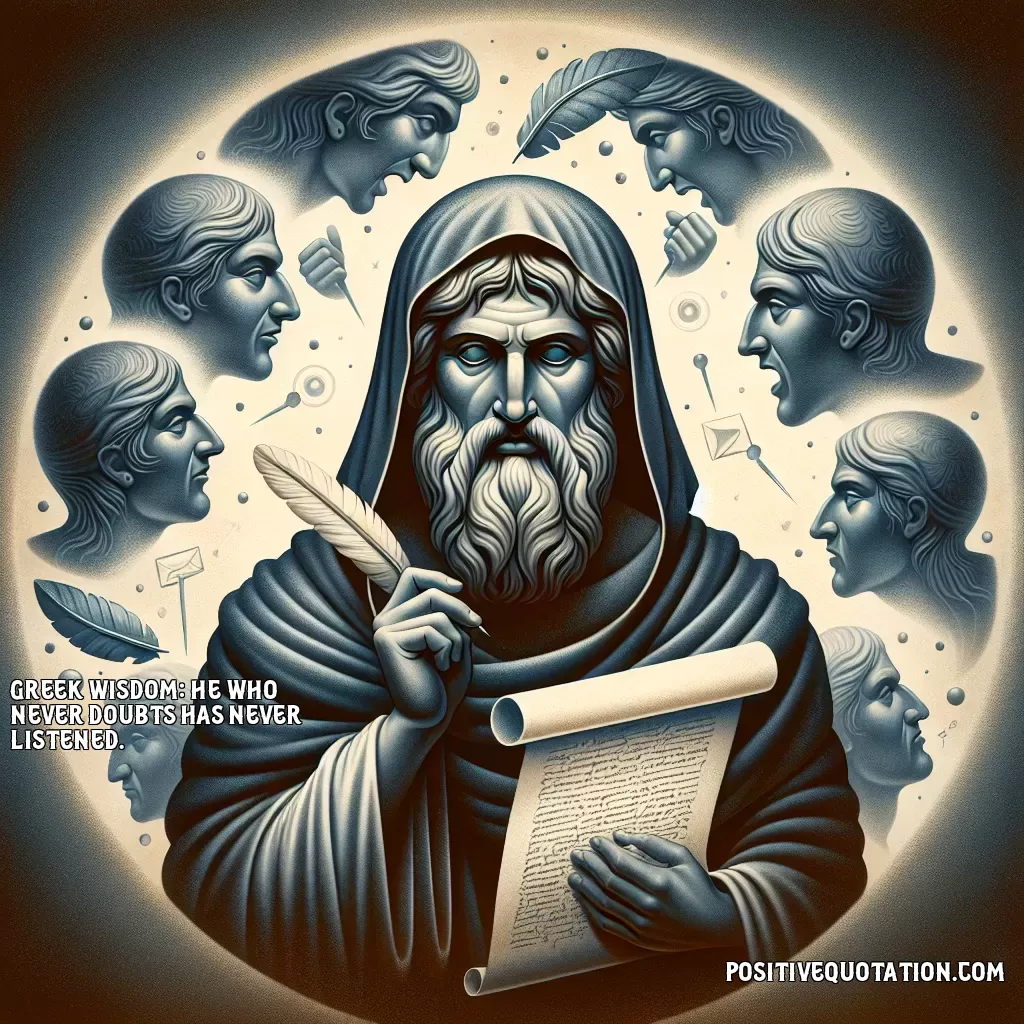
Greek Wisdom: He who never doubts has never listened.
Author: Plato
👁️ 8 views
The quote "He who never doubts has never listened" speaks to the importance of maintaining an open and inquisitive mind, emphasizing the role of doubt in the pursuit of knowledge and understanding. It suggests that those who never harbor doubts are not truly engaging with the world around them or with the information presented to them. In essence, active listening is more than simply hearing words; it involves processing, questioning, and considering different perspectives. Doubt serves as a catalyst for critical thinking and deeper analysis. When we listen intently, we inevitably encounter ideas and viewpoints that challenge our preconceived notions or beliefs. These moments of tension demand our attention and encourage us to re-evaluate what we know, leading us to question and sometimes doubt. Through this process, we grow intellectually and emotionally, as doubt prompts us to explore further, seek evidence, and clarify our own understanding. In contexts such as academia, science, or personal relationships, doubt is a valuable tool. It prevents complacency and promotes a continued quest for truth and clarity. Without doubt, there is the risk of becoming stagnant, as unquestioned acceptance of ideas stifles growth and innovation. Therefore, a lack of doubt may imply a lack of genuine engagement or critical reflection. In summary, integrating doubt into our listening processes enriches our interactions and insights, fostering a more nuanced and profound comprehension of the world and the multitude of perspectives within it.
Quote By: Plato
Plato (c. 427–347 BCE) was an influential ancient Greek philosopher, student of Socrates, and teacher of Aristotle. He founded the Academy in Athens, one of the earliest institutions of higher learning in the Western world, and wrote numerous dialogues exploring themes such as justice, beauty, and equality. His works, including "The Republic" and "The Symposium," laid the foundational principles of Western philosophy and political theory.
Bio added on: 2025-02-16 11:19:14